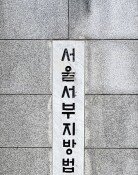Weak Won Raises Prices of Imported Goods
Weak Won Raises Prices of Imported Goods
Posted March. 22, 2008 07:55,
Its really hard to put new price tags.
Lee Hae-dong has been selling imported goods for 30 years in Doggebee Market (meaning a market selling everything but the kitchen sink), located inside Seouls famous Namdaemun Market. In response to surging won-yen exchange rate, the 76-year-old man put new price tags on products on Wednesday.
A few moments later, a woman in her 50s visited the store. When asked, Why has the price risen so sharply? he answered, We have no choice but to raise the price due to surging foreign exchange rates. She just looked around and left the store.
A wine shop in the market has also renewed its price tags. A bottle of Chateau Talbot, a sort of French wine, now sells for 92,000 won. In comparison, it cost only 68,000 won three months ago. The shops manager, Ahn Seong-dae, said, We sell wines that we bought several months ago for lower prices. However, consumers have to pay more for those which we recently purchased. Surging prices have dispelled many customers.
○ Falling Won Value Affects Prices of Imported Goods
A recent decrease in the won value has contributed to rising prices of imported goods, which are preferred by middle-income brackets. Unlike other major currencies like the euro and the yen, the won has fallen against the dollar. As a result, prices of goods imported from major economies like Europe and Japan have risen more sharply than those imported from the U.S. For example, the euro was exchanged for 1,371.65 won on Jan. 2. However, it has risen to 1,578.49 won per euro on March 20. The won-yen exchange rate also surged from 838.20 won per 100 yen on Jan. 2 to 1,018.15 won per 100 yen on March 20. Increasing logistics costs resulting from oil price hikes and rising raw material prices have also put inflationary pressure on prices of imported goods.
The nations major wine importers have increased their prices by 15 percent between February and March. Prices of some luxury French wine brands have recently gone up a whopping 30 to 50 percent. Lee Cheol-hyeong, president of wine distributor Winenara, explained, In the run up to the 2008 Beijing Olympic Games, demand for wine has surged in China, which, in turn, has resulted in a lack of supply. That has partly contributed to the recent wine price hike.
European cheese has also experienced a sharp price increase. According to Lotte Mart, European cheese prices have climbed 8 to 10 percent over two months. Australian beef prices have also jumped 11 percent over three months.
In Busans Gukje Market, which mainly sells imported goods, prices of imported food have increased 15 percent on average. Compared to two months ago, the price of American tomato ketchup surged 20 percent and that of walnut soared 25 percent. With regard to goods imported from Japan, the price of instant noodle jumped 28.6 percent, soybean paste 20 percent and sesame seasoning 16.7 percent. What is worse, even the price of Chinese sesame increased 10 percent over two months.
Due to surging price of imported goods, demand for Japanese digital cameras imported by unofficial importers who import products via diverse distribution channels, has also decreased. When the won had been strong against the yen, those importers could provide their offerings at lower prices. However, it does not work any more. Unlike official import products which can be brought into Korea at a fixed foreign exchange rate, parallel import goods reflect a real-time exchange rate.
A shop owner selling Japanese cameras in Namdaemun Market said, Parallel imports are still cheaper than official imports by 20,000 to 30,000 won. However, its better for customers to buy official imports if they consider after-sales service.
○ More People Cancel Overseas Trips to Countries Whose Currencies Have Strengthened
Jeong Jong-han had planned to go to Europe with his wife from a year ago. However, he recently gave up his dream since the euro has sharply risen against the won, to reach 1,600 won per euro. The 58-year-old man said, If we choose to go to Europe as scheduled, we have to pay far more than expected.
As increasingly more people have made similar decisions, the reservation cancellation rate has gone up in tourism agencies. For example, Mode Tour, one of the nations largest travel agencies, said that only 1 percent of customers had canceled their reservation in the past but the figure soared to five to ten percent recently.
Mode Tour is scheduled to increase its tour package prices for Europe and Japan by 50,000 to 250,000 won beginning April 1. It explains that the won-yen exchange rate has increased 100 won against the yen and the won-euro exchange rate has jumped 200 won per euro since it first launched the tour packages.
Jeong Hyo-jin, 32, who had bought Japanese diapers for her 11-month-old baby, recently began to use diapers manufactured by local diaper makers, since the price of Japanese diapers is not affordable any longer.
The National Statistical Office released the Consumption Expectation Index in February. According to the agency, the expectation index for value oriented spending which includes the spending for eating out and entertainment fell 3.3 points from 94.3 in January to 91.2 in February.
Sookmyung Womens Universitys economics professor Yoon Won-bae said, Since imported goods are not necessities, the demand for imported goods immediately decreases when the price begins rising. If the current foreign exchange rate remains unchanged, the standard of living will aggravate in the middle-income bracket.







